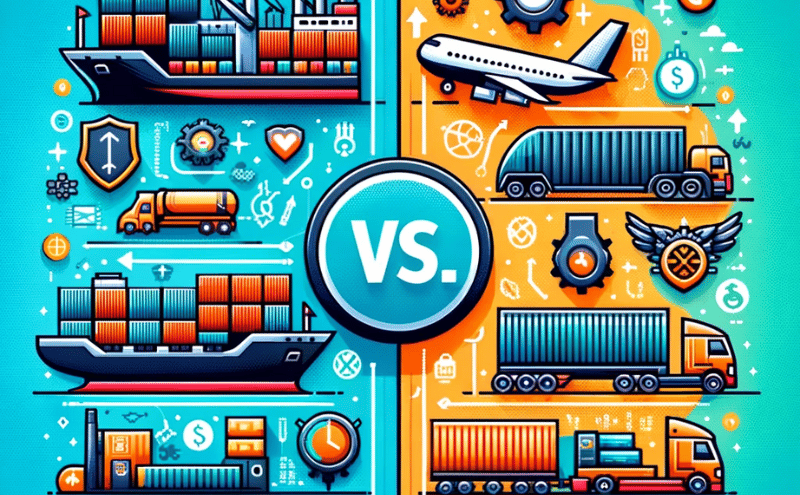Cargo and Freight: Understanding the Key Differences
In the world of transportation and logistics, terms like ‘cargo’ and ‘freight’ are often used interchangeably. However, there are subtle differences between these two terms that are important to understand, especially for businesses involved in shipping and receiving goods. Let’s delve into what sets cargo and freight apart, and why these distinctions matter.
What is Cargo?
Cargo refers to the goods and products that are transported from one place to another. The term is very broad and encompasses a wide variety of items, from raw materials like coal and grain to manufactured products like electronics and furniture. Cargo can be transported via different modes, including air, sea, road, or rail.
One key aspect of cargo is its association with containerization, especially in maritime shipping. When you think of cargo, picture those large metal containers loaded onto a ship. This method of transport is essential for international trade, as it allows for the efficient and secure movement of goods across long distances.
What is Freight?
Freight, on the other hand, is more about the process and the service of transporting goods. It’s the practical aspect of moving cargo from point A to point B. Freight can also refer to the remuneration paid for the transport service. Therefore, when we talk about freight, we’re focusing more on the logistics, the transportation means, and the costs involved.
Freight is often categorized based on the mode of transportation used: air freight, rail freight, road freight, and sea freight. Each of these categories has its own set of rules, regulations, and typical practices.
Key Differences Between Cargo and Freight
- Definition Scope: Cargo refers specifically to the goods themselves, irrespective of how they are transported. Freight, however, encompasses the broader process of transportation and the charges involved.
- Usage Context: In everyday language, cargo is used more commonly when referring to goods transported by ship or plane. Freight is more commonly associated with goods transported by land, like trucks and trains.
- Commercial Aspect: Freight has a more commercial connotation, often linked to the logistics and business side of transportation. Cargo is more neutral, focusing solely on the goods.
- Containerization: Cargo is frequently associated with containerized transport, especially in maritime shipping. Freight does not necessarily imply containerized transport and can refer to bulk and other types of shipments.
Why Do These Differences Matter?
Understanding the distinction between cargo and freight is vital for businesses involved in shipping. It helps in better communication with logistics providers, ensuring that the services required are clearly understood and appropriately managed. For instance, a business negotiating freight rates needs to consider the entire transportation process, not just the value of the cargo.
Additionally, this distinction is crucial for legal and insurance purposes. Documentation for international trade, insurance policies, and transport contracts often use these terms distinctly. Misinterpretation can lead to complications and misunderstandings in agreements.
Conclusion
While cargo and freight are related concepts in the transport and logistics industry, their differences are significant. Cargo is about the goods themselves, while freight refers to the transportation process and costs. For businesses and individuals involved in shipping, a clear understanding of these terms ensures smoother operations and better communication with partners in the logistics chain.
Understanding the nuances of such industry-specific terms not only helps in logistical planning but also enhances professional communication and legal clarity. As the world becomes increasingly connected and the transportation of goods remains a vital part of global commerce, such knowledge becomes ever more valuable.




